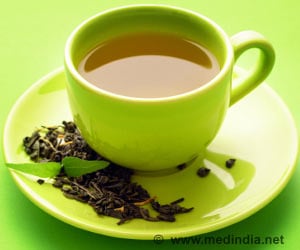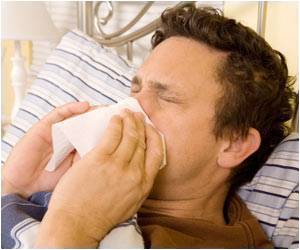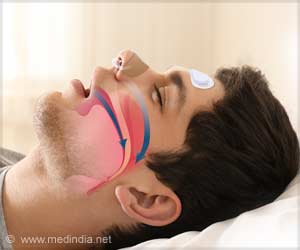From caffeine to cascara, explore the science behind tea's surprising laxative effects and why it might be your gut’s best friend!
- Caffeine in tea stimulates colonic muscles, promoting bowel movements
- Herbal teas like senna and dandelion have natural laxative properties
- Tea's vasodilation effects relax bowel muscles, easing defecation
What Does Tea Make You Poop?
There are numerous good reasons to drink tea. As a bonus, tea can assist you poop when you are feeling bloated. It contains caffeine (1✔ ✔Trusted SourceCaffeine content of common beverages
Go to source) and is a vasodilator which helps you defecate.
Caffeine and Pooping
Caffeine causes you to poop (2✔ ✔Trusted Source
Exploring the connection between caffeine intake and constipation: a cross-sectional study using national health and nutrition examination survey data
Go to source). However, the important thing is that it operates in an entirely different manner.
The colon removes moisture from digested food and moves it to the sphincter, where it exits the body. Tea contains caffeine, which stimulates your colon and pushes food to the sphincter.
Vasodilation
Vasodilation refers to the widening of blood vessels. It means that the blood vessels dilate, resulting in increased circulation, which is nearly always advantageous to your health.
Drinking warm or hot liquids of any type has a vasodilating effect on the body. However, it is not as straightforward as tea. It is not simply a vasodilator because it is heated. Tea contains thearubigins (3✔ ✔Trusted Source
A new method to prepare and redefine black tea thearubigins
Go to source), which have been demonstrated to dilate blood arteries when eaten.
Thearubigins are polyphenols produced during the oxidation process that tea experiences. Black tea contains more due to its higher oxidation. Green and white teas have fewer, and oolong falls halfway in the middle.
So, drinking tea will dilate your blood vessels, but what does this have to do with pooping? Vasodilation in the digestive system not only opens blood vessels but also relaxes your bowel muscles! Relaxed defecation muscles indicate that they are ready to release waste!
Which Teas Help You Poop?
Most teas have a laxative effect, although not all teas are as poopy.Senna Tea
Senna tea is prepared from the leaves, fruits, and flowers of a legume plant that originated in Egypt. It is not your typical tea and is typically consumed for therapeutic purposes, such as assisting with bowel movements (4✔ ✔Trusted Source
Are Senna based laxatives safe when used as long term treatment for constipation in children?
Go to source).
It is not recommended to consume this for longer than a week. It can result in laxative dependence and possibly liver damage. This is extreme medicine!
It has a slightly sweet flavor with a strong bitter aftertaste. However, it is frequently paired with something more pleasant, such as jasmine, so you will likely taste it more. Drinking this tea will get things moving, but I would only use it as a last resort if the other teas on this list don't work.
Licorice Root Tea
Licorice root is well-known around the world for its anti-inflammatory effects (5✔ ✔Trusted Source
The Anti-Inflammatory Properties of Licorice (Glycyrrhiza glabra)-Derived Compounds in Intestinal Disorders
Go to source). For thousands of years, it has been used to aid digestion. And, of course, helping folks poop!
Licorice root is a popular supplement for people with IBS (irritable bowel syndrome), as it helps calm an upset stomach and help feces flow out. This root, Glycyrrhiza glabra, has been around since ancient times.
Licorice root does not have a disagreeable taste. If you have ever tried black licorice, this tastes similar, but not as sweet. It will be helpful.
Cascara Tea
The term 'Cascara' literally means skin, peel, or husk. Here, it refers to the skin of a seed or bean.
Certain teas containing cascara have grown in popularity. The most well-known of these is a coffee cherry tea. Cascara is not yet widely available and remains an uncommon speciality drink. You may also find it marketed as a brain health supplement or as coffee fruit tea.
Cascara is really effective at making you poop (6✔ ✔Trusted Source
LiverTox: Clinical and Research Information on Drug-Induced Liver Injury [Internet]
Go to source).
Dandelion Tea
Dandelions have been used as medicine for a very long time. Dandelions are well-known for their ability to dramatically reduce water weight (7✔ ✔Trusted Source
The diuretic effect in human subjects of an extract of Taraxacum officinale folium over a single day
Go to source).
Dandelion tea can stimulate the liver to produce more bile, allowing some tough waste to exit the intestines! This is a popular tea among health-conscious individuals, and it tastes good. If you have the opportunity, you should give it a try!
Do Tea Leaves Have a Laxative Effect?
Tea brewed from the genuine tea plant does not have strong laxative qualities. Matcha had the strongest laxative impact of the group, but it is still far less effective than coffee.However, the herbal teas mentioned above can help you to poop. If you are constipated and in need of relief, try one of these teas. It is generally better than taking a pharmaceutical laxative.
References:
- Caffeine content of common beverages - (https://pubmed.ncbi.nlm.nih.gov/762339/)
- Exploring the connection between caffeine intake and constipation: a cross-sectional study using national health and nutrition examination survey data - (https://pubmed.ncbi.nlm.nih.gov/38167025/)
- A new method to prepare and redefine black tea thearubigins - (https://pubmed.ncbi.nlm.nih.gov/29859681/)
- Are Senna based laxatives safe when used as long term treatment for constipation in children? - (https://pubmed.ncbi.nlm.nih.gov/29429768/)
- The Anti-Inflammatory Properties of Licorice (Glycyrrhiza glabra)-Derived Compounds in Intestinal Disorders - (https://pubmed.ncbi.nlm.nih.gov/35456938/)
- LiverTox: Clinical and Research Information on Drug-Induced Liver Injury [Internet] - (https://pubmed.ncbi.nlm.nih.gov/31643176/)
- The diuretic effect in human subjects of an extract of Taraxacum officinale folium over a single day - (https://pubmed.ncbi.nlm.nih.gov/19678785/)
Source-Medindia











